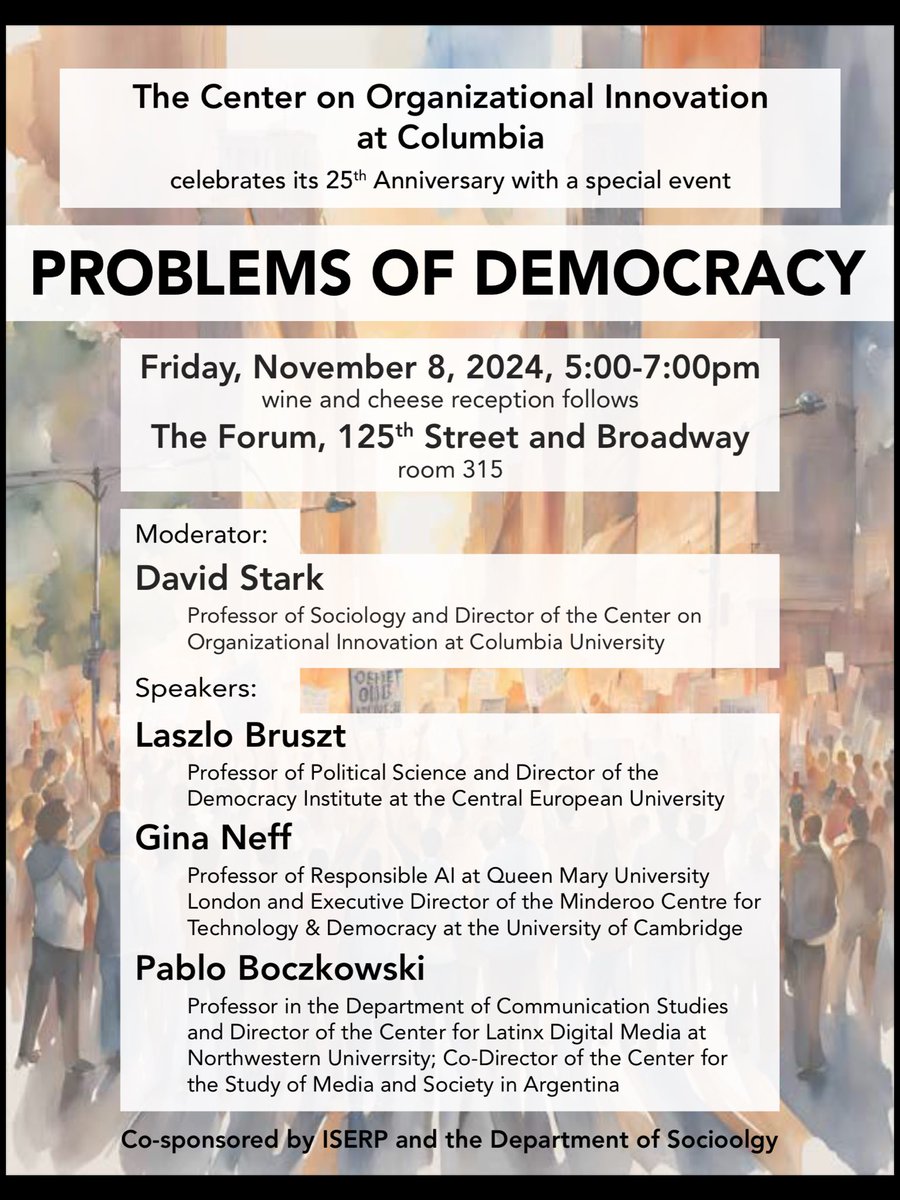
Daniel Beunza
@danielbeunza
Specialized in the sociology of financial markets. Author, "Taking the Floor: Models, Morals and Management in a Wall Street Trading Room."
ID: 720552498
http://www.danielbeunza.com 27-07-2012 17:34:42
3,3K Tweet
1,1K Takipçi
659 Takip Edilen











Core to the Egos debate was not just the political backlash to ESG, but a subsequent academic backlash whereby renown scholars have mounted a searing challenge to the findings of ESG research 2/n papers.ssrn.com/sol3/papers.cf… papers.ssrn.com/sol3/papers.cf… papers.ssrn.com/sol3/papers.cf…





Panelists offered a valuable suggestion: abandon the business case for ESG, ie that it preserves investment returns. That was a depoliticizing strategy to promote ESG beyond its political proponents, yet the business case for CSR was abandoned 15 ago! 7/n journals.sagepub.com/doi/10.2307/35…









